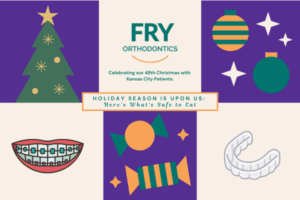Are you someone who suffers from tooth sensitivity, but aren’t sure why? Unexpected pain or discomfort when consuming hot or cold food and drinks are common symptoms of sensitive teeth. Figuring out the underlying issue will help you understand the steps to take in getting yourself feeling better.
What is tooth sensitivity?
Tooth sensitivity is an exaggerated response to hot, cold, sweet or acidic foods and drinks, exposure to cold air and even brushing your teeth. If you’re someone who has felt this short, sharp, painful sensation when taking a bite of ice cream, or slurping a mouthful of hot soup, then you know what we’re talking about. Having tooth sensitivity can make eating a challenge, and enjoying your favorite treats near impossible.
Symptoms of sensitive teeth
Symptoms of sensitive teeth can range from a mild twinge to considerable discomfort. Pain can come and go, and may be worsen on occasion. Depending on the cause of your sensitivity, you may feel pain in one tooth or many all at once.
Understanding tooth structure
In order to figure out why your teeth are sensitive, it’s important to understand the makeup and structure of a tooth. Each tooth consists of 1) a crown, which is the visible part of the tooth, and 2) the root, which anchors the tooth into your jaw. Components of the crown include:
- Tooth enamel: The hard, white looking layer that protects the sensitive inner parts of the tooth.
- Cementum: A thin, protective layer of bone-like tissue underneath the gum line that protects the tooth root.
- Dentin: A layer of softer tissue which contains tiny canals
- Pulp: The soft tissue inside each tooth that contains blood vessels, connective tissue and nerves.
If for any reason the enamel starts to wear away or erode (dental erosion), your tooth’s dentin is exposed. If you were to eat a cold popsicle with exposed dentin, the second it touches your tooth you may experience extreme tooth sensitivity. Why? Nerve signals in the root of your tooth that are not protected by enamel respond by sending signals to the brain. This results in a sudden onset of tooth sensitivity and pain.
Causes of tooth sensitivity
A range of factors can lead to tooth sensitivity but there are two main underlying factors: Enamel loss and gum recession.
Causes of Enamel Loss
- Acid erosion: Overconsumption of acidic foods and drinks such as soda and other high-sugar beverages.
- Dry Mouth: When your body is not producing enough saliva, your mouth can become too dry resulting in enamel loss.
- Gastrointestinal Issues: People who suffer from GERD or acid reflux, may experience enamel loss quicker than others. This is due to the amount of acid coming back up into their mouth after food has already been digested.
- Genetics: Some people just simply have thinner tooth enamel due to their genetics!
- Environmental issues: Every day wear and tear, friction and stress.
Causes of Gum Recession
- Brushing too hard: Brush too aggressively can cause damage to your gums resulting in gingival recession. When this occurs, you may notice a sudden onset of tooth sensitivity.
- Gum Disease: If you have gum disease, you are at an increased risk of gum recession. It’s important to take good care of your oral hygiene to reduce plaque and tarter buildup for these reasons.
- Teeth Grinding or Clenching: Too much pressure on the teeth over time can cause recession along with other issues. If you’re someone who grinds their teeth at night, please talk to our team at Fry Orthodontics or your general dentist about the benefits of a night guard.
- Hormonal changes: Among many other things, hormones can have a direct effect on your oral health and can even speed up the process of gum recession.
- Smoking: Tobacco products increase plaque build-up on teeth, which over time can lead to a greater risk of gum recession.
Treating Tooth Sensitivity
Maintaining good oral hygiene is key to keeping your teeth healthy and your enamel strong. Here are a few tips on how to take good care of your teeth and avoid sensitivity:
- Brush gently twice a day with a soft bristle toothbrush in a circular motion to keep your teeth and gums clear of plaque and tarter buildup.
- Visit your dentist twice a year for a checkup and dental cleaning.
- Avoid acidic foods and drinks as much as possible. If you do consume soda, be sure to brush your teeth immediately after so the sugar does not sit on your teeth for a prolonged period of time.
Benefits of Orthodontics
Keep in mind that teeth can also become sensitive if they are not aligned properly or if your bite is off. This is because it’s harder to keep overlapping teeth clean – there are more areas for plaque to hide when teeth are not in proper alignment. Overbites, underbites and crossbites can also cause pain because of how the teeth come together when chewing food. Over time, this friction can cause pain and sensitivity.
At Fry Orthodontics, we can help align your teeth and jaw to avoid these issues in the future, or alleviate pain you may already be experiencing. Visit our website by clicking here, or give our office a call to schedule a free consultation: 913-469-9191 | 816-877-0050.





